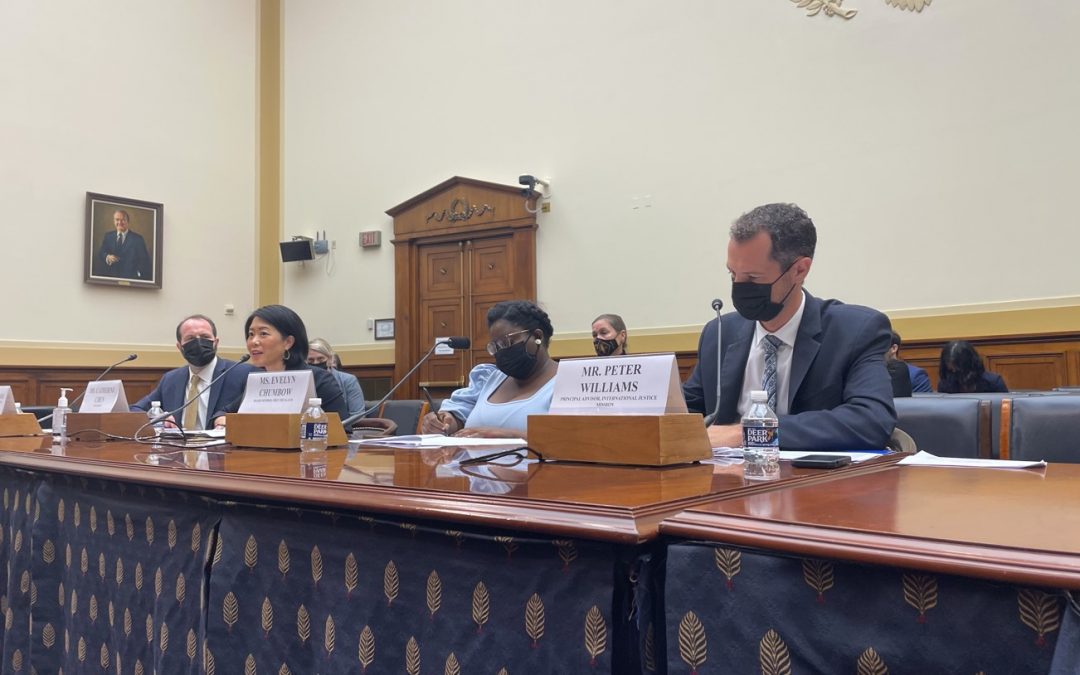WASHINGTON — While many have been impoverished, beaten down and made even more vulnerable following a year-long battle with the pandemic, the business of human trafficking has flourished.
“You have probably heard that human trafficking can happen to anyone,” said Evelyn Chumbow, trafficking survivor and board member of Free the Slaves. “That is true, but that is not the whole story. Trafficking happens when someone is vulnerable socially, economically and racially.”
Lawmakers on the House Foreign Affairs Subcommittee on Africa, Global Health and Global Human rights, along with a panel of experts, gathered on Wednesday to discuss combating global human trafficking. In the U.S. alone, human traffickers are making an annual profit of at least $150 billion, according to the International Labour Organization.
According to the 2021 Trafficking in Persons Report, the number of globally identified victims of human trafficking has more than doubled between 2014 and 2020. Notably, there was a reported dip in identified victims around the time the pandemic began. Experts suspect the decline is the result of redirected resources from law enforcement and social services, not a result of human trafficking deterrent efforts.
“The COVID-19 pandemic has resulted in a diversion of resources to combat trafficking,” said Rep. Christopher Smith, R-N.J. “While vulnerabilities increase, the law enforcement and survivor support have significantly declined leading to dramatic increase in trafficking.”
Alex Thier, CEO of the Global Fund to End Modern Slavery, asserted that the world is facing a “global crisis.” Over 40 million people live in modern slavery conditions, he said. Those forced into either sex trafficking or labor trafficking are deprived of their fundamental rights, dignities and freedoms. Women and girls make up 70% of the victims.
“Despite significant commitments and investments, I come before you today with a stark truth,” said Thier. “The number of people living in modern slavery is rising, not falling.”
Widening Reach
As the pandemic forced the world into isolation, human traffickers have adapted and moved further underground to target these vulnerable individuals.
“Traffickers are using online platforms to sexually exploit young children often for profit, and this form of trafficking has increased during COVID-19,” said Peter Williams, principal adviser for modern slavery at the International Justice Mission.
Experts on the panel advocated for better promotion of data, technology and investment to combat trafficking as the pandemic surges on. They pleaded and said that those affected by trafficking deserve the best resources the world has to offer.
“One common misperception of human trafficking is that it requires movement across borders, but anyone can be trafficked anywhere,” said committee Chairwoman Karen Bass, D-Calif., “including right here in our own backyard.”

